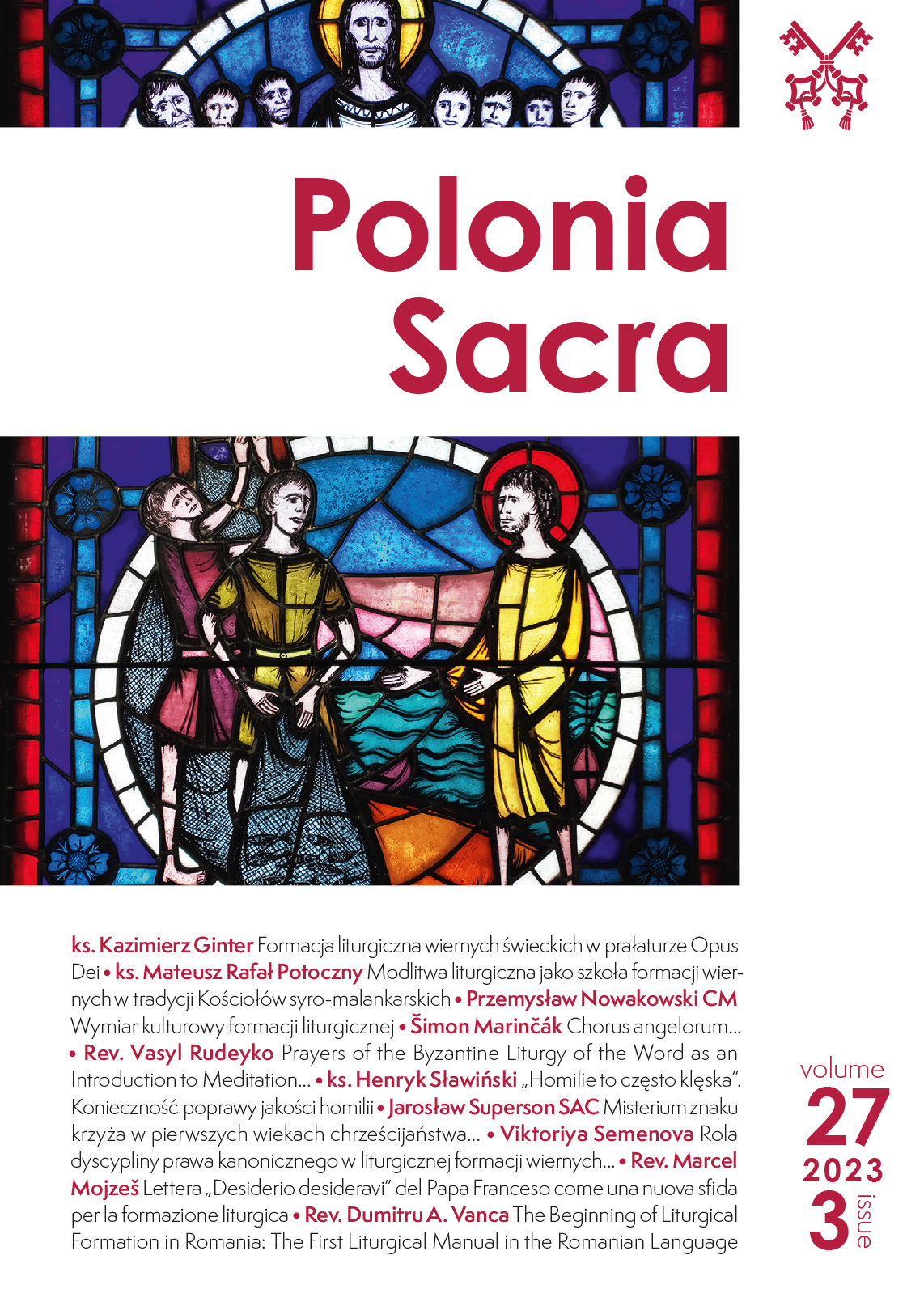The Letter “Desiderio desideravi” of Pope Francis as a New Challenge for Liturgical Formation
DOI:
https://doi.org/10.15633/ps.27309Keywords:
liturgy, liturgical formation, Desiderio desideravi, form of ChristAbstract
The apostolic letter Desiderio desideravi of the Holy Father Francis goes beyond the liturgical sphere of the Latin tradition and is a challenge also for Eastern Catholics because of its theological, liturgical and spiritual depth. This paper presents some of the main points of this apostolic letter: (1) Godʼs desire is the beginning of liturgical formation; (2) The beauty of the liturgy is more than ritual aestheticism; (3) Amazement before the Paschal Mystery is an essential part of the liturgical act; (4) Formation for the liturgy and formation from the liturgy; (5) The goal of liturgical formation is our conformation to Christ. It means to have the mind, feeling, and will of Christ. The Apostolic Letter Desiderio desideravi confirms once again that the liturgy is the source and summit of all Christian life.
References
Benedetto XVI, Esortazione apostolica Sacramentum caritatis.
Brock S. P., Lʼocchio luminoso. La visione spirituale di santʼEfrem, Roma 1999.
Časoslov, Roma 1962.
Francesco, Lettera apostolica Desiderio desideravi.
Giovanni Paolo II, Lettera ai sacerdoti in occasione del Giovedì Santo, 13.03.2005.
Mojzeš M., Hľa, Ženích prichádza. Úvod do teológie, liturgie a spirituality prvých troch dní Veľkého týždňa, Prešov 2019.
Ratzinger J., Dio e il mondo, Milano 2005.
Ratzinger J., Duch liturgie, Trnava 2005.
Sicari A. M., Poselství Jana od Kříže, Kostelní Vydří 2013.
Sláva Isusu Christu!, in: Slovo k 1100. výročiu úmrtia svätého Cyrila, Košice 1969, p. 3–4.
Downloads
Published
Issue
Section
License
Copyright (c) 2023 Marcel Mojzeš

This work is licensed under a Creative Commons Attribution 4.0 International License.
Authors who publish with this journal agree to the following terms:
- Authors retain the copyright and full publishing rights without restrictions, and grant the journal right of first publication with the work simultaneously licensed under a Creative Commons Attribution 4.0 International License that allows others to share the work with an acknowledgement of the work's authorship and initial publication in this journal.
- Authors are able to enter into separate, additional contractual arrangements for the non-exclusive distribution of the journal's published version of the work (e.g., post it to an institutional repository or publish it in a book), with an acknowledgement of its initial publication in this journal.
- Authors are permitted and encouraged to post their work online (e.g., in institutional repositories or on their website) prior to and during the submission process, as it can lead to productive exchanges, as well as earlier and greater citation of published work (See The Effect of Open Access).

